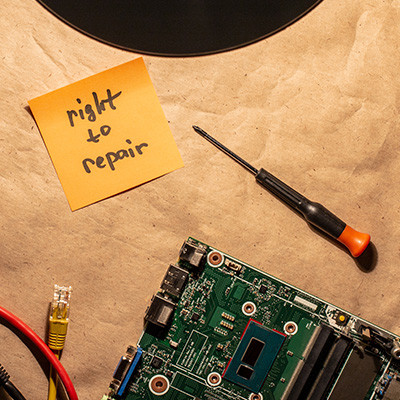Social media is addictive, this much is true. For the people who never have taken the leap and put themselves out there, it is often maddening to see people jump from outrage about one issue to another issue without any real resolution. This week, we will discuss the neverending stream of controversy that is brought on by social media and some things you can do to keep it from being a problem for you.
JS Business Solutions Blog
Following the heinous attacks that caused the Twin Towers to fall in New York on September 11, 2001, you heard about terrorism every single day for years. The “War on Terror” waged for over a decade toppled multiple governments and set a precedent that terrorists will be relentlessly pursued. While there have been a few massive terrorist events that have shocked the world in the subsequent years after 9/11, cyberspace has become one of the biggest battlegrounds. Today, we’ll briefly discuss the rise of cyberterrorism.
Unless you’ve been living completely off the grid, you’ve probably heard of Facebook, Twitter (now X), and Instagram. Most people are on at least one of these platforms—or maybe they’re on TikTok, YouTube, or LinkedIn. Businesses have also relied on these platforms for marketing. But even though these companies are worth billions, people are starting to question whether these platforms can keep going as they are. In this blog, we’ll break down some of the problems with today’s biggest social media platforms and why alternatives might be the future.
It’s fun to be critical of social media, but there’s no denying the massive influence it has on individuals, societies, businesses, and even the political landscape. Since social media plays such a big part in so many areas of your digital life, it’s important to know how it all factors into your personal rights and privacy. Today, we want to examine the idea of who really owns what you post on social media and who is in control of your accounts… because it’s definitely not you.
There has been a good deal of controversy about how personal data has been collected, sold, and used over the past few years. Companies of all types package and sell data to create a valuable extra revenue stream for their business, and while this should be thought of as a side effect of all the data that is created by people, it can also create some pretty difficult situations to try and navigate. Today, we’ll take a look at the data-broker loophole, how it works, and what can be done about it.
Subscription services are all over the place these days, and we’re willing to bet that you have a couple of lingering subscriptions that you’ve either forgotten about or don’t care enough about to cancel immediately. The Federal Trade Commission, however, seems to care enough to take action with a ruling that makes canceling subscriptions easier. Businesses won’t be able to add more hurdles to their subscription cancellations, which is good for end users.
You may remember the hubbub and hullabaloo that ensued when Josh Allen, a digital artist, won first place at the 2022 Colorado State Fair’s Fine Arts Competition in the Digital Arts/Digitally Manipulated Photography contest with an image—"Théâtre D'opéra Spatial"—that he had created using AI. Allen continues defending his work, now butting heads with the Copyright Office.
Technology continues to play a major role in healthcare, especially as it has become more prominent. Through technology, the healthcare industry has been able to stabilize costs, improve access, and personalize care delivery—challenging concepts in years past. That said, these innovations come at the cost of potential issues with data privacy… issues that become more prominent as technology becomes even more advanced.
Artificial intelligence has become one of the most talked-about technologies throughout every sector of society. It’s being widely used in business, education, and civic life. We want to focus on the latter element and discuss how the U.S. Department of Homeland Security is using AI to improve its ability to keep Americans safe.
Are you familiar with the works of Isaac Asimov? The author wrote a short story called “Runaround” in 1942, and it introduced the idea of the Three Laws of Robotics, or laws that all of the robots in his Robots series must follow. This stranger-than-reality concept is being used today by Google, which has announced a set of safeguards partially inspired by these three laws to help it control future AI-powered machines.
Over the last half-year, Meta, the renowned social media conglomerate (formerly known as Facebook), has been strategically capitalizing on all the drama within Twitter (referred to as X) by introducing Threads, a microblogging community akin to its X counterpart. Today, we will look at Threads by drawing comparisons with Twitter and taking a look at Meta's motivations in enticing users away from the established microblogging giant.
These days, it feels like things change quickly and without warning, but there are certainly still some parts of the holiday season that retain some of the good, old-fashioned traditions of yesteryear. While the holiday season is more commercialized than ever, technology has made it more viable to spend these times of laughter, leisure, and cheer with loved ones, even if you’re far apart physically.
Most of us know that Santa Claus lives at the North Pole, but fewer know that he’s specifically built his big castle and workshop someplace called the Laughing Valley. There, he and all the elves, sprites, pixies, and fairies that help him make his toys live and work to give the children of the world their presents each year.
All that being the case, even Santa and his team need a little help every once in a while.
Technology is constantly evolving and shaping the way we do business. From artificial intelligence to virtual reality, these advancements have the potential to revolutionize industries and drive success. However, not all technologies are met with open arms. In fact, some technologies are met with controversy and skepticism. In this article, we will explore some of the most controversial business technologies and the impact they have on the market.
Many years ago, the practice of repairing office equipment or household appliances that malfunctioned was a common and practical solution. However, over time, changes in business practices have largely eliminated this option. In recent years, the Right to Repair movement has emerged as a legitimate campaign aimed at advocating for legal protections to safeguard the rights of the modern tech-dependent public.
As comfy as it can be at times, sitting for all hours of the day isn’t something we’re built for. As a result, not only does sitting all day impact our overall health, it can functionally hurt our productivity as well. Fortunately, there are some simple exercises and activities that can be done at the workstation to help mitigate these negative outcomes.
From its very beginnings, technology’s purpose has been to advance and supplement our capabilities. Today, there are examples of tech fulfilling that role in everything from agriculture to manufacturing and everything in between. The advancement of 3D-printing is just one of the many, many ways that this trend of technology simplifying our basic needs has recently shown its value. Let’s discuss how the development of 3D-printed food could benefit the human race in various ways.
Have you ever left your laptop open on a table or a desk and return to see that your cat is draped across the keyboard? It may seem like a cute anecdote, but the truth is that while having pets enhances our lives, they can be a problem for your technology. In fact, some studies put the repair/replace bill of pet-induced technology problems at around $3 billion annually. In this week’s blog, we discuss how to protect your computer from your four-legged friends.




















